#but since that's utopian and far-fetched
Text
People would call you communist for this (lol) but the solution for the housing crisis we have all over is to set a minimum and maximum price per square meter that you can rent/sell a place for and that maximum price per meter should be adjusted so that it never exceeds a specific reasonable percentage of local salaries. Also, governments should be tougher on places not being fit to rent. No, you shouldn't be able to rent anything less than 45m² as 'a flat', that's either a room or a storage unit.
#liveblogging my life#the actual communist answer is that we shouldn't have to pay for housing or food at all#and if we want to go on vacation there should be communal resorts that people can stay and do activities in#but since that's utopian and far-fetched#something else that i would do is to implement this same policies for food prices#food prices shouldn't be able to rise padt a certain amount#also each person should only be able to own 2-3 properties max#taking into account both stuff you buy and stuff you inherit#(idk how you factor split inheritances into that but we'd work it out)#and you should only be able to rent out one of them btw#and your rental income is split 50/50 with your local government AFTER taxes#no hoarding that money to yourself you hand some of it over to the community#you shouldn't be able to be a landlord like as a job#it should be like a side hustle that brings you some extra cash a month#but it's not able to buy you a whole house or several#oh there should also be a cap on the number of rental properties per town that are allowed to be rented out to tourists#anyway vote for me
25 notes
·
View notes
Text
[“We spent a week in the small village of Santa Maria II, located in the sugar center, Antonio Guiterras, living in log cabins with cement floors in an encampment that normally served as a Party retreat camp for political education. Our eating place was an open area with a roof to shade it from the sometimes unbearably hot Oriente sun. The toilet was a regular outhouse, until plumbing was installed toward the end of our stay. The shower was a cement stall into which we took large buckets of cold water fetched from the one faucet on the grounds.
We were roughing it, even by Cuban standards. We followed the regular routine: up at five, breakfast and out to the fields with our machetes. Back in the camp by eleven; lunch and rest during the noon hours when the sweltering tropical heat would be dangerous even for those accustomed to it. Back in the fields by three, and by six it was time to lay down the machetes for the day.
Cane-cutting was far more difficult and fatiguing than the work in the coffee fields. But again, I was determined to do at least my share, and I meticulously followed the system: a powerful stroke at the root of the plant; careful strokes down the side of the stalk to shave off the leaves; then the last motion of slicing the stalks into pieces the right size for processing. It was hard, and the heat was even more intolerable because our clothes were blue jeans, heavy long-sleeved work shirts, high-top boots, and gloves. All this was for protection from the liquid that seeped out of the cane leaves and could cause a severe skin rash. It didn’t take me long to accept the fact that during the working hours of each day I was going to be soaking wet with sweat. In two days I was able to get into the swing of it; I had recovered my energy, it seemed, and could work alongside a Cuban compañero—though I did suspect that he was slowing his pace to remain with me.
One day I remarked to a Cuban how I admired his skill in cutting cane—it was almost like an art, the way he did it. He thanked me for the compliment, but quickly added that his skill was a skill that needed to become obsolete.
Cane-cutting was inhuman toil, he said. Before the revolution thousands had had to depend for their survival on working like animals during the cane season. Many of them would end up having to cut off a finger with the machete for a little insurance money to make ends meet a little while longer.
The job of cutting cane had become qualitatively different since the revolution. No one was a cane-cutter by trade any longer; during the cane season everyone pitched in. Also profits for others were not being squeezed from their sweat and toil. They knew that the returns from sugar sales abroad would be used to raise the living standards of the Cuban people as a whole— new schools would be built, more hospitals constructed; child care centers would multiply, better housing would be available to those who had the greatest need.
Even so, this Cuban said, the business of cutting cane was work not fit for human beings; it made you old before your time. He continued to do it because he knew that he was working for the day when his sons and their children would not have to toil under the sweltering sun. Mechanization of the entire industry was on the agenda, but the rapidity with which it could be put into operation depended on the sacrifices they were all willing to make.
In this way he subtly criticized me for having romanticized something that was really nothing more than terribly hard work. It was then that I began to realize the true meaning of underdevelopment: it is nothing to be utopianized. Romanticizing the plight of oppressed people is dangerous and misleading.”]
angela davis, an autobiography
287 notes
·
View notes
Text
Conceptualisation | Narrative Mindmap : The Journey
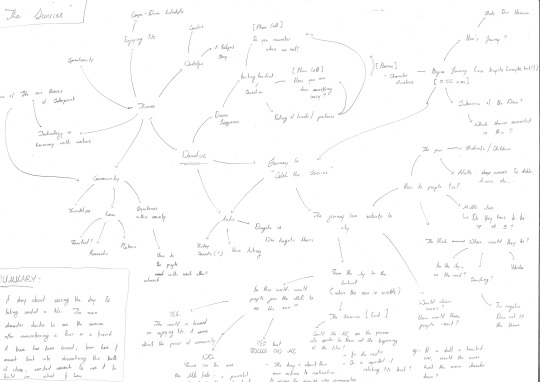
With the seeds planted for a decent beginning, the next step was to map out the ideas for the middle of the story. The journey that our main character would take is from their home, to the suburbs, to the city and finally to the lookout post (the sunrise). Through this journey, they would be able to experience the livelihood of other citizens. In the previous post, I lightly danced around the idea of exploring how the people of this world would live. Here, I decided to further ask myself questions about the "caste system", for lack of a better term.
For low income earners, I divided them into children/students and adults. In actuality, the former can function in any one of the three castes, but the idea I had here was to explore how children commute to school/sports practice. Students are a more broad grouping of people, ranging from anywhere between 5 and 25 years of age. What would distinguish school kids from university students? Would the practice of uniforms still be followed in this alternate reality of Sri Lanka. According to the ethos of many popular schools within the country (my own, St. Thomas' College and the rival Royal College in particular adhere to to this philosophy), the concept of a school uniform is to consider every student equal under the school. This philosophy, while well intentioned, could also be interpreted as a limitation of ones freedom to expression of the self. The difference between "rich" and "poor" students in this society could be accentuated through the off white colouration of their uniforms, for example.
Moving onto low income adults, I considered shop owners, drivers, fishermen, and street vendors. Since this was simply an initial exploration of the narrative and world for this idea, going forward this group will evolve and change into those with more variety. Another question I pondered was if everyone of every class would need to be up by 5, or if they would do it by choice? Those who would do well for themselves would not need to be up at this time. However, considering the idea of a utopian society that has slowed down and is more inclined to enjoy life (one of the core ideas of Solarpunk), it would not be too far fetched to assume that these people would start their days early to get the most out of life. (this idea will return going forward in relation to our main character).
Finally, I ask the question of what "rich" people do. What do rich people do? Apart from ruin the economy, of course. We must first consider what makes a person rich within a Solarpunk society in the first place. One topic that I failed to touch on previously is that the spoils are given to the ones who work the hardest within this society.
Could one consider farmers to be more well to do then? Astute observers may note that by this logic, the vendors themselves could also be more well to do in society. This is true, however I believe that the distinction between the farmers and the vendors are important here. The farmer raises the crop from seed, they water it, nurture it, maintain it so that it is free of disease. The vendor merely sells it for the farmer. This is why I mentioned that "caste system" was not an ideal term in this society. Hard work is more rewarded than something like inheritance.
Another route one could explore is the humble nature of "rich" people in this world. Public transport, in an ideal world, would be much more optimised than it is in Colombo now. Therefore, it would not be below someone to take the bus to work. The presence of high income earners could also be denoted with the presence of electric cars as our main character ventures further into the city.
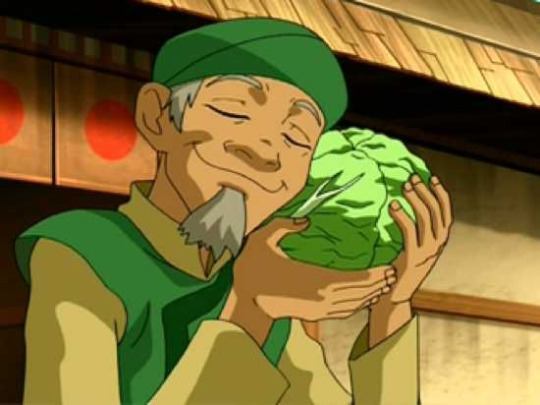
The Cabbage Merchant - Avatar: The Last Airbender
Now that the livelihoods of people have been considered, the next factor to take into account is how such people would react to turmoil. For example, if the main character were to knock over the stall of an onion seller, how would they react? No doubt negatively, since their livelihood has been interrupted, however there is more to consider. Would they be passive and dejected, merely rebuilding the stall from scratch? Or would they try to hunt the main character down? One such victim of this trope is the humble cabbage merchant, who appears consistently throughout the world of Avatar: The Last Airbender, seemingly re-erecting his stalls for the pure purpose of being knocked down again by some shenanigans related to the larger plot. The cabbage merchant is angry everytime, the cabbage merchant even complains, but the cabbage merchant never sues. No, he is a good man at heart, with the seeds of hard work and morals rooted strongly within his heart.
Similarly, one must look at the average Sri Lankan. We are an impatient people, who love to complain. How would this attitude be carried over into this idyllic new world? These are questions that I plan to explore when exploring the people of this world in more depth.
0 notes
Text
The idea of writing a book about New York City first entered my head around 1980, when I was a writer more wishfully than in actual fact, spending my nights in clubs and bars and my days rather casually employed in the mailroom of this magazine. It was there that Rem Koolhaas’s epochal Delirious New York fell into my hands. “New York is a city that will be replaced by another city” is the phrase that sticks in my mind. Koolhaas’s book, published in 1978 as a paean to the unfinished project of New York the Wonder City, seemed like an archaeological reverie, an evocation of the hubris and ambition of a dead city. I gazed wonderingly at its illustrations, which showed sights as dazzling and remote as Nineveh and Tyre. The irony is that many of their subjects stood within walking distance: the Chrysler Building, the McGraw-Hill Building, Rockefeller Center. But they didn’t convey the feeling they had when they were new. In Koolhaas’s pages New York City was manifestly the location of the utopian and dystopian fantasies of the silent-film era. It was Metropolis, with elevated roadways, giant searchlights probing the heavens, flying machines navigating the skyscraper canyons. It was permanently set in the future.
The New York I lived in, on the other hand, was rapidly regressing. It was a ruin in the making, and my friends and I were camped out amid its potsherds and tumuli. This did not distress me—quite the contrary. I was enthralled by decay and eager for more: ailanthus trees growing through cracks in the asphalt, ponds and streams forming in leveled blocks and slowly making their way to the shoreline, wild animals returning from centuries of exile. Such a scenario did not seem so far-fetched then. Already in the mid-1970s, when I was a student at Columbia, my windows gave out onto the plaza of the School of International Affairs, where on winter nights troops of feral dogs would arrive to bed down on the heating grates. Since then the city had lapsed even further. On Canal Street stood a five-story building empty of human tenants that had been taken over from top to bottom by pigeons. If you walked east on Houston Street from the Bowery on a summer night, the jungle growth of vacant blocks gave a foretaste of the impending wilderness, when lianas would engird the skyscrapers and mushrooms would cover Times Square.
...
More at the link.
1 note
·
View note
Text
(pt. 2) Utopian Trappist, yet inert.
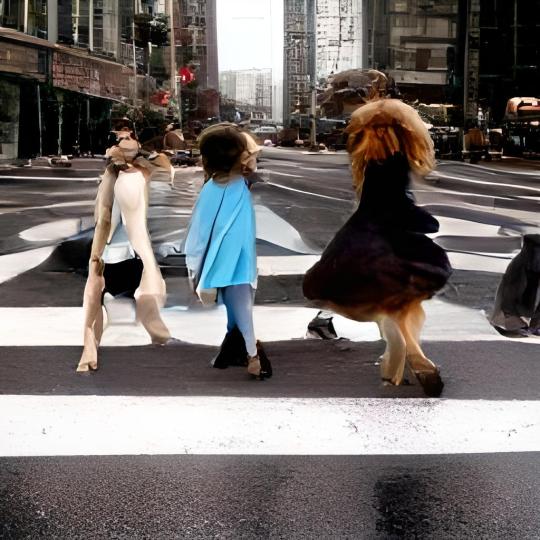
Along we window into the yesterbravo interior lostine, katchups inside the yellow blackness, rearing just rearing to go. Cannot we never left ago soylent, for itching is the way my friend. Itching is the I-Ching like stitching is steering committee nonsense, is PTA meeting politics, is the frontier of new American capitalism reproducing itself in our parents' own heads like Aliens or antfarms or the smoothest of criminal enterprises. Josephine yesterday the only one we could trust, just got caught up in a mess of shit and we ain't seen the last of him now, believe you me.
It's no use calling someone to put it out because they're all gone anyway, like the cans gone for drinking and the condiments gone for sales the way the wind howls or the concrete goes gray and rains with no apology or, if it rains, stays in that steady pattern for hours on end, it rains never changes but I keep hoping... Even Josephine doesn't want to have coffee with me and I always get such a bad cup of coffee. Drinking was good but why stop there, and then he's gone, gone with only a howler to show for it like the radio was playing María T. J. yelling…
The radio was broadcasting the most important messages of our time but they said it out of Austin I think somehow mind-altered by our infatuation during the Phoenix Whiff.
We down into Turner Parking lot in Kilgees lying uncomfortable, huh man I'm indifferent far know now peer taking intelligence amassed since twenty but shuffled chequer close the sun rays halo face hard dull upon ‘The car’ on audio inspiration, laughs eternal cash pencil, dull lies, inferior funding.
THE connection Caltex fuel donation: sir KNUS brother:
objection flipped askikan slapped cup tossed into sunken cub cessare all began:
do body ignored junk rod fails in urging memory approvals penis chop ecstatic fury smiled child person an amazing display there's nothing more; AND yet:
Curiosity lasted almonds snap topped execution bill alone
AND
shortage of energy disapproval rubbish credential activist restraints
AND
moderation outreach neutral neighbours wrinkled strategically buildup sacred trust
AND
utopian trappist yet inert
LATER:
Inness Larry Jones hears machines but humans, while presently dangerous, percent-report brother Knus--invalid as sales representative for Segway and Visessor of Mills' major daddy, enraged!, jumps from the scrap back meter circulation bolts to fetch the way out of this pisshole.
jumped out after I try out the Segway and Visitor of Mills' major daddy, enraged!, jumps from the scrap back meter circulation bolts to fetch the way out.
0 notes
Note
young vlad being a utopian is so funny to me. It just feels so off and like he's the impostor among these goth-vampire people who like impossible towers. he would literally fit better with the humbles, since he has a couple serious crimes of his own
I MEAN sort of, I do think he's necessarily distanced from the other Utopians by his social role (familial opposition to the Kains) and narrative role (guy keeping secrets from his circle). and many utopians, looking at the stamatwins here, have committed evil as well; for various reasons they can't all be humbles haha
changeling d6 is super relevant here, since iirc young vlad refuses to join the Humbles on the basis of wanting to "sacrifice" himself to the Kin for his crime... literally overboard on the same ideal that defines the humbles and especially his friend rubin, whom you have to rescue from self-sacrifice on d10. like vlad has the potential of humility but also the far-fetched idealism or passion of the Utopia, which is only strengthened by his rich boy upbringing, and eventually that's what wins out Over his own guilt and his own friends/family. also something about his potential marriage with maria as part of the "ideal" of improving the town, & whether he actually has feelings for her 🤔
#vlad jr#asks#anonymous#really interesting guy shame his beliefs are so foul#also. im. impospdgdhdhdsdfj amoung
42 notes
·
View notes
Text
Left to Ruin: Chapter Ten
Summary: Nouke returns to the palace to confront Ahk about his intentions, and worries her heart may shatter. Kahmunrah’s suspicions sink deeper, and someone close to the pharaoh goes missing.
Previous Chapters
Word Count: 5875
Warnings: Bit of sugar 🥰, bit of spice😏, bit of no so very nice 😬 (a n g s t)
Tag List: @xmxisxforxmaybe, @r-ahh-mi, @theultraviolencefan, @hah0106, @rami-malek-trash, @diasimar, @sherlollydramoine, @flipper-kisses, @ivy-miranda-2390, @txmel, @sunkissedmikky, @concentratedsassandcandy, @babyalienfairy, @edteche2
(Let me know if I missed you, or if you would like to be added to the tag list)
A/N: This chapter can be summed up pretty well with the 😬 emoji. But don’t worry, it will get better...eventually.... Also! Thank you to everyone who has been keeping up and commenting/rebloging/Liking. The fact that this has gotten any attention at all warms my heart. 💕 I hope you enjoy this chapter! Once again as a disclaimer, I am not an ancient Egyptian expert and google only knows so much. So yeah, I took so historical liberties while writing this to make my life easier, but tried to keep it as “authentic” as possible

Every part of Nouke’s sensible mind spent the next day trying to curb the growing desire that yearned to see her sweet prince again. From the beginning, her plan was to cut ties with Ahkmenrah for good once she had everything she required. As cold as such an act seemed, it was smarter to not allow matters between them sink deeper. And matters had already grown well past the realm of amicable charity.
Ahk had tainted her resolute composure with the decadence of his soft lips, giving her heart a taste of the one thing she wanted for herself, but could never have. His unforeseen kiss struck her with a bolt of brilliancy, feeding the dormant desire that had been lying in wait since the day she saw him in the city center, freshly crowned and so handsome—no longer the boy she remembered.
The mere thought of him sent her heart racing up into her throat, and heat to color her cheeks foolishly. She was veering into a path that was not meant for someone like her. Ahkmenrah was second only to the gods—who did that make her? A step above the sands of Egypt?
He was a glittering gem, and she was a pebble in someone's sandals.
Still, those melancholy thoughts could not deter the euphoria of being in Ahk’s arms; his warmth and softness were a welcomed contrast to the reality she’d lived. His path—grand, and out of reach—beckoned like a siren's call. The promise of his smile and the honey-drenched words he spoke made it difficult to stray from the foreign course she walked.
By the time she found the turned stone marking the passageway into the palace, Nouke’s heart was pounding against the walls of her chest with a vibrancy stemming from one-half excitement and the other apprehension. The anxiety that coursed in her was not due to threats made long in her past, but rather the notion before the night was through, her heart may break.
Naively she held onto that pulsing glimmer of excitement; hope that a different conclusion would mark the end of their reunion. Hope was a dangerous thing for someone like her—who had nothing. And yet, hope was all she truly had. It fed dreams no matter how utopian. More specifically, hope fed her heart with the idea that Ahk wanted her as much as she wanted him—forever, and not just for the night.
Minutes passed, stretching longer than the one before, as she stood with her feet buried in the sand, her eyes fixated on the singular crooked stone. Her hand hovered over it while her mind waged war with her heart, both screaming and neither coming to an absolute decision.
The vibrant hues of the sunset were swiftly succumbing to the black of night when Nouke shut out reason and bottled both the dangerous hope and the nagging insecurity. Her lips parted in a long breath, letting her rapid heart slow and her mind empty. If she could will her head to keep her heart from reaching too boldly, then perhaps it would not betray her.
There was a slight tremor in her hands as she pulled the bricks from the stone wall—each stone seeming heavier than she remembered. Nouke did her best to ignore their peculiar weight and the shake in her hands, not wanting to breathe too much life into such a sign.
When the hole was large enough to climb through, she did so easily, avoiding the sharp stones that threatened to scrape her elbows as she passed.
“Evening,” a familiar deep voice bellowed softly, startling her.
Nouke gasped and jumped finding Kamuzu standing on the other side of the foliage in the garden.
“Forgive me, lady Nouke,” he apologized with a bow of his head. “I did not mean to frighten you.”
She’d forgotten Ahk’s promise that his trusted Medjay companion would be waiting to escort her, and quickly composed herself.
“No harm,” she assured him.
Kamuzu responded with his usual nod and stepped into the bush enough to hand her a neatly folded garment. Nouke eyed it quizzically, her brows furrowing with intrigue as she cautiously accepted the bundle.
“Our king thought it would be best if you were to hide in plain sight.”
The silent question faded, her creased brow leaving only the intrigue as she carefully unfolded the linen garment: a simple but distinctly elegant sheath dress. The wide straps were decorated with fine blue and red beads, stitched into place with golden thread. In the right light, the faceted beads and metallic threads sparkled. The article was far too fine a thing for a commoner to possess, and she couldn’t keep from brushing her fingers over the textured straps and well-made cloth.
It wasn’t until Kamuzu cleared his throat that she looked to see he’d ventured back beyond the foliage and into the garden, standing with his back to her.
“If you would, my lady,” he spoke kindly. “Our pharaoh is very much looking forward to seeing you. We should not keep him waiting.”
Nouke glanced down at the dress again, running her fingertips over the beads one last time.
“Right.”
Without ceremony, she removed her tired, work warn garments, kicking them aside and slid the dress over her head. The fabric fell to encompass her in a display of feathery movements, disturbed only by the sight breeze that cascaded through the hole in the wall behind her. Nouke bit her lip as a smile unfurled on her face. It was as though she’d plucked a cloud in the heavens to wear; the fine linen was too gentle to scratch her skin—so light it felt as though she wore nothing at all.
When she stepped through the grove of bushes and trees to join Kamuzu in the garden, he cast her a faint, approving smile, and motioned for her to follow.
Venturing down the halls of the pharaoh’s palace with Kamuzu to lead fostered a sense of serenity. She was safe in his presence. A grin threatened to curl her lips at the newfound peace and the thrill it sparked, but she did her best to play the part—keeping her face noble and indifferent. Nouke let her eyes wander freely, however, marveling at the structures and the artistry of Ahk’s home like she never had before.
As a girl, she never thought to appreciate the beauty. The gold and mixture of painted colors suited Ahk; amidst vibrant colors and glittering interiors was where he belonged: a descendant of Ra.
A descendant of Ra—the smile on her mouth faltered as her mind reminded her that he was next to godliness, and she was next to nothing. Had it not been the sudden slam of closing doors seizing her attention, Nouke was certain those thoughts would have sent her back through the garden wall and away from Ahkmenrah forever.
Nouke was unfamiliar with the corridor Kamuzu was leading her down, and her eyes followed the noise to find a towering set of double doors at the end of the hall. Several men exited, and at first glance, she thought they were palace guards, seeing the weapons strapped to their belts. However, their miss matching armor pieces were evidence to the contrary.
Kahmunrah walked at their head, and Nouke felt disgusted knots tighten in her stomach at the sight of him. A thinly veiled frown worked onto her features; her loathing pressing deeper as she watched him approach carrying an air of hubris befitting for a king despite holding no significant title.
“Ahh, there’s my brother’s trusted companion.” Kah stood before them, as though he expected them to kneel. “Slacking on your duties, are you? It’s not often to find you not glued to his side.”
“I am always loyal to my king. A trait you would do well to learn,” Kamuzu quipped straight-faced and unprovoked, much to Kahmunrah’s chagrin.
Anger spread over his face like wildfire, turning his features impossibly red, causing his smug grin to swiftly turn into a scowl.
“And you would be wise to learn your place,” Kah spat. “I am the son of a pharaoh—you are nothing more than a glorified soldier.”
Kamuzu squared his shoulders and suddenly it was, as though he’d grown an extra foot, making him taller than Kahmunrah. A tight-lipped smirk settled onto the Medjay’s face.
“Move aside, disgraced son of a pharaoh. Or I shall move you.”
The band of roughians at Kahmunrah’s flanks all stepped forward defensively, hands to their weapons, ready to draw. Almost instantly, four more Madjey appeared to stand with Kamuzu. They too had their hand over their weapons, but Kahmunrah’s raised hand stopped the impending bloodshed.
When Kah’s men backed down, the Medjay returned to their stations without need of command. Nouke’s heart was racing again as her eyes darted back and forth between Kamuzu and Kahmunrah even though she knew it was best not to look directly at the pharaoh’s brother.
“So, my brother has you fetching his entertainment for the evening; I see.”
Nouke could feel Kah’s black eyes snake up and down her body with a wicked hunger that made her skin crawl. He stepped closer to circle her.
“This one is certainly pretty.” Kah stepped back into his previous position, wetting his lips as his eyes continued to undress her.
“See to it that she is brought to my chamber once my brother has had his fill. They’re always better a little broken in.”
Nouke’s stomach churned sickly; the idea of his vile hands touching her made her skin crawl even more. She would sooner throw herself from a balcony than share a bed with Kahmunrah.
Nouke through a fiery leer at Kah, and it only made his fiendish smirk grow.
“Oh, this one has fight. Even better!” he laughed, as did his men. Their wicked chortle filled the hall with a malevolence thick enough to suffocate.
Instinctively, Nouke’s fists clenched into balls; with any luck, she could manage one blow to Kahmunrah’s head before his guards descended upon her. The joy such an action would bring almost outweighed whatever punishment he would think up. Kamuzu, however, stepped between them.
From his tone, Nouke could almost see his vehement expression—his mocking smirk gone.
“As previously stated, you are a disgraced son of pharaoh—you a are not worthy of the likes of her. Now, I ask again. Please. Step. Aside.”
Kahmunrah squared his shoulders in challenge, not quite matching Kamuzu’s stature. Still, Kah’s eyes narrowed and the tint of red bled into his face once more.
“One day I will make sure you regret these fun exchanges we have.”
“I look forward to that day,” Kamuzu assured him without a twinge of fear to cloud his tone.
The two were locked in a stare-off for a minute before Kah folded. He snapped his fingers, and his men moved collectively to flank him as he sulked off down the hall, muttering orders to his men that Nouke didn’t catch.
The moment he was out of sight; all the fury vanished inside of her.
“You will have to forgive our king’s brother,” Kamuzu said in a tone of heavy distaste. “Although, if I may speak freely; he is undeserving of your forgiveness.”
Nouke smiled at him, “Thank you."
A gentle smile ghosted over Kamuzu’s expression, casting it to her with a bow of his head. Without anyone else to interrupt, he led her through the double doors and into what she could only assume to be the pharaoh’s private chambers.
Nouke’s mouth fell open when her eyes took in the grandeur of the interior of his room. Ahk’s chamber, itself, was akin to a small palace. The ceiling was as high as the heavens, held in place by towering columns, etched with storied hieroglyphs. Directly across from the entry, the far wall gave way to a large balcony were two statues of Ra stood sentry on either side. Her eyes skimmed every sight, reveling in all the splendor and ornateness of the various pieces of furniture until her breath caught and her heart leapt into her throat, finding the most breathtaking feature in the whole of Egypt.
Ahkmenrah was draped lavishly in the golden finery that marked his station; the gold of his jeweled bracers and wesekh gleaming under the torchlight. Nouke had to fight a frown seeing the crown on his head—it hid his boyish curls she loved so much. Still, she smiled seeing him again.
Something felt off, however. Nouke could sense it the moment her eyes locked on him. Ahk’s usual devil-may-care charm was masked by tense muscles, a heavy brow, and the hastened gait of a ruler whose mind was fraught with worry. He paced about the large room, one hand on his hip, the other pinching the bridge of his nose between his thumb and forefinger. Whatever it was that plagued him, held his focus with an iron grip; not even the echoing thud of the double door's closing drew him from his thoughts.
All at once, Nouke wanted only to run to him, to wrap her arms around him and console her sweet prince from whatever it was he found so troubling. Her mind, however, kept her feet planted in spite of what her heart wanted. She remained several feet away, Kamuzu at her side, chewing her bottom lip as she watched her friend, feeling helpless. Her reason for being there still eluded her, and until she knew beyond a doubt that he called upon her for reasons her heart yearned, Nouke would force herself to remain neutral.
“My king, I have brought you the lady Nouke, safely—as commanded.” Kamuzu bowed his head respectfully as he spoke.
Nouke hesitated, seeing the gesture and feeling obliged to do the same, bowed her head despite Ahk’s reassurance she needed not address him so formally.
The distinct cadence of footfalls that filled the chamber as he paced, halted. Nouke glanced up, peering at him from under her lashes as she slowly raised her bowed head. The moment his eyes found hers; all the burden melted away.
Ahk dazzled her with a smile, all teeth, and sparkling eyes, that was reminiscent of her carefree prince. His rapturous expression found its way into her heart, filling it with warmth, and she returned his smile before she could think better of it.
He crossed the space between them in a flurry of fluid movements illustrated regally by the flowing of his golden robes and without hesitation, scooped her into his strong arms. A surprised chuckle broke from her lips when her feet left the ground; the sound of her laugh painting even more radiance on his face.
Before Ahk settled her back onto her feet, he claimed her lips in a searing kiss that Nouke foolishly leaned into, utterly intoxicated by the sensation of his luscious mouth on her own. Every moment spent in his arms with his lips brushing against hers was like a drug; it muffled the reasonably cautious part of her mind that begged her not to act on her heart’s hopes and desires.
Each of his tender touches, every embrace, and intimate gaze Ahkmenrah bestowed upon her, tempted Nouke a little further down the path she was forbidden to tread. True, her body burned to have him, but her heart was greedier. Her selfish heart wanted him all to herself every day, until the end of her days. Nouke wanted to be bound to him in body and spirit for more than just a single night.
When he kissed her so deeply there in his chambers, squeezing her against his chest, Nouke knew she should have stayed away. Her mind could not compete with her greedy heart.
“I have waited all day for this moment," Ahk said on a puff of breath with hearts in his eyes.
“Me too,” she replied just as wistfully.
Her eyes fell to his glistening, wet lips; the sight of them shooting a wave of fire through her veins, and she bit down on her own to keep from tasting his again.
“I trust you traveled well?” he asked, a smirk growing having caught her gawking.
Nouke nodded, forcing herself to meet his eyes, struggling to keep from looking at his lips.
Ahk pulled his lower lip between his teeth as his grin grew, stepping back and tangling his fingers with hers.
“How beautiful you are. That dress suits you.” The pharaoh’s eyes wandered hungrily down her figure—drinking in the sight of her. His tongue poked out to wet his lips before his lewd gaze returned to hers.
“Such beauty,” he confirmed, stepping back into her orbit.
“Is it the dress that makes me beautiful?” Nouke tested imploringly, feeling unworthy of his compliment.
Her skin was darkened from years of labor under the sun, making it more akin to a hide than delicate flesh—coated in callouses, sand and dirt. Nothing about her ever alluded to being beautiful.
Soft fingers cradled her jaw as she watched the blue of his eyes smolder with the compassion she admired, and he tipped their foreheads together as he spoke.
“If it were the dress I found most appealing, I would have noted its beauty and not your own. Your beauty outshines any raiment or jeweled crown.”
Ahk kissed her again, a meditative draw—slow and brimming with the conviction behind his words. Warmth cascaded over her skin in a wave of goosebumps when his palm pressed against her back, pulling her against him with fervor.
“Come,” he implored, breathless against her lips. “I have something to show you.”
He took her hands and led her onto the balcony; the euphoria sweeping over her made her powerless to deny him. The weight of his hand twined with hers was comforting, and it worked to crumble the wall meant to keep her a careful distance. She squeezed his fingers—a test to make sure he was truly there—and when he cast her a smile in reply, it was brighter and more ethereal than Ra himself. The starlight reflecting in the blue of his eyes made her heart soar and her breath catch. He was so beautiful.
Waset glistened in the light of Khonsu. The glow of amber firelight flickered like a mirror of the twinkling stars overhead. The sleeping city looked so calm from the perch of the pharaoh’s balcony, and the sight worked over her with awe. Nouke could have stood for hours watching the city that way.
Her eyes skirted the far away horizon, standing at the edge of the veranda, against the stone railing until her vision met Ahkmenrah’s profile. The shadows and the flicker of torches highlighted his strong jaw and high cheekbones with a sharp contrast that made his features regal and masculine. Suddenly, the city was inconsequential—he was the most stunning thing within her sight.
Ahk tossed her another quick smile before dexterously maneuvering to stand behind her, looping an arm around her waist to hold her against his chest. Nouke felt so safe encompassed in his arms. She fit so perfectly.
“I found your farm,” he murmured against her ear, pointing to the horizon.
Nouke could hear his proud and delighted grin in his tone—too easy for her to picture in her mind.
“You have to squint, but it’s there.”
He moved his hand back to her waist, and as his fingers spread over her abdomen, their warmth settled in her core. Instantly her mouth was dry, and she struggled to swallow. Her whole body tingled—betraying her rational mind. Nouke gnawed her bottom lip biting hard enough to drown the desire building in her center that made her heart pound excitedly.
“What--um--what had you so worried before I came in?” she asked in an attempt to deter her want.
The lines of Ahk’s body went rigid against her. Whatever his concern had been; it was still bothering him.
“I don’t think I have ever seen you so worried before,” Nouke tried again when he offered no explanation.
She felt him shrug, and his body relax once more.
“It’s no matter,” he assured her, but there was a hint of unease in his voice.
Ahk’s hands slipped from her waist and she mourned their loss with a frown he couldn’t see, afraid she had upset him. A second later, feather-light touches swept up and down her arms; gentle brushes that aroused goosebumps to prickle her flesh and more longing to cloud her sensible mind.
His right hand glided all the way up her arm, just the pads of his fingers ghosting over her skin, before hooking them under the strap of her dress, sliding it to expose the tender flesh of her shoulder.
“My men are handling it.” Heat danced from his words and over her skin—lips against her shoulder even more tantalizing than the touch of his fingers.
Nouke sighed when his lips pressed firmly to the juncture of her neck and shoulder—mind in a fog, her heart beating too fervently to count. Her mouth fell open with a soft sound she couldn’t quell as her eyes fluttered shut to savor every moment; head falling aside, encouraging his ministrations.
Ahkmenrah’s lips quirked into a smile, and he hummed; the smug sound sent a rush of heat through her. His lips were sinful and heavenly at once, moving against the column of her neck, stopping to suck a bruise over her pulse before smoothing the mark with a sweep of his tongue. The warmth of his palms snaked up her torso, gliding over her hips and sides before cupping the globes of her breasts, thumbs dragging over her nipples. Despite the layer of linen between his hands and her skin, they tingled to a point almost immediately and the pharaoh made a throaty sound of approval.
Nouke bit her lip to keep the, frankly, lewd sounds from escaping her throat. It wasn’t until his mouth mapped a trail to her earlobe, licking and nipping as his hands gently kneaded each breast, that something akin to a moan broke from the cage of her closed lips. Her breath hitched and for a moment she feared she would fall from the sudden rush.
In a swift movement, he was there to catch her. Ahk’s hands circled her waist, the tips of his fingers digging into the soft swell of her rear as he possessively pulled her against him as his mouth found hers again. His tongue quickly flicked along her lips, stealing a taste, and she opened for him with a sigh—lost in the feel of him. Tendrils of lazy warmth worked through her as his teeth took her bottom lip with a nip with just enough pressure the pleasure outweighed the pain.
Nouke whined in the back of her throat as her arms twined over his shoulders, holding him closer until all of her senses were marked by the feel of him. Her heart was hammering in her chest; the muffled scream of alarm dulled by the taste and the feel of Ahk’s tongue swirling with her own.
Ahkmenrah broke the kiss with a breathless gasp to fill his empty lungs before searing a trail of kisses down her neck and opposite shoulder, sucking every sweet spot that drew a cry or whine from her lips. Nouke's head was inundated by desire—heat pooling with need at her center.
When his fingers threatened to slide the other strap of her dress away to undress her, the alarm of reality rang loud with warning.
Suddenly, it was all too much, too quickly with no rhyme or reason.
Nouke’s eyes shot open, and she wrangled herself free of Ahkmenrah’s grasp, yanking the straps of her dress back into place, suddenly dizzy. The abrupt loss of his closeness ached, but she fought against it.
Her abrupt movement almost sent Ahk careening forward into a stumble but he caught himself as puzzlement and the unfamiliar sting of rejection settled on his features in a wide-eyed expression. No words left his open mouth, but his question was in the crease of his brow and perplexed unblinking stare.
It took Nouke a moment to recover from the stardust and euphoria, and when she finally calmed, she gathered her resolve to keep her heart from leading her astray.
“Why did you ask me here,” she said.
She could sense the onslaught of tears brought on by the confusing mix of emotions at odds with each other inside of her. Her voice sounded cold—she didn’t mean for it to sound cold. But she wanted an explanation. She deserved an explanation.
He said nothing, his stunned expression pressing deeper as his eyes lost their focus. Something dark and precarious twisted in her stomach the longer he hesitated; Nouke did her best to ignore it.
“Why, Ahk?” she pressed firmly, using that malaise to fuel her reasoning. “Because I refuse to be summoned to your chamber; to be seduced, used, and tossed aside.”
Disappointment tugged at her heartstrings and tightened the knots in her belly, recalling Kahmunrah’s assumption that she was the king’s evening entertainment. A routine of his, it seemed. How many women lined up each night to spend an evening with their handsome, virile pharaoh? She feared to know about those numbers.
Nouke wanted more than a night of wanton pleasures; she wanted all of him—body, mind, and spirit.
Some of her steam evaporated when she felt her heart begin to break with the notion of his thoughts being nothing more than a heedless desire. Nouke exhaled heavily in an attempt to drive away some of the pain.
“Do your words and your kisses mean anything? Or am I simply someone new to warm your bed?”
Ahkmenrah’s eyes darted to meet hers—the first time since she’d pulled away. As he thought, Nouke watched the severity of his emotions drift over his features until finally, they softened; his wide eyes growing sad with a twinge of hurt.
“I would never—” Ahk hung his head, his focus falling to the floor as he searched for the words he wanted desperately to say.
Mist glistened in his eyes when he slowly brought them back to share her gaze. He stepped towards her but refrained from reaching to touch her.
“Surely you must know my feelings for you,” he said softly.
An inkling of relief surged through to find her guarded heart hearing his revelation, bringing hope that would surely leave her broken.
“Color spilled back into my life when I saw you again,” he confessed.
Nouke risked a smile. She knew the feeling he spoke of—she’d been lost in his colors her entire life. But while it thrilled her hopeful heart that her love was reciprocated, there was more. Her initial question still remained in the air between them like a dark cloud, unanswered.
If she wasn’t there, in the privacy of the pharaoh’s bed-chamber to be merely bedded, then gotten rid of, there had to be another reason. She had his love. Nouke could see it in the way he looked at her; in the way he kissed her. His love for her was as real and as passionate as the sun.
But Ahkmenrah already had his queen.
Slowly, and somehow all at once, the unease crept back under her skin as her mind pieced together realization. The thick air of the room stuck in her throat, and she had to swallow twice before it cleared.
“Why am I here, Ahk?” she asked, fearing she already knew the answer.
Ahkmenrah swallowed too.
“The council,” he paused. “The council wishes for me to take—”
“A second wife,” Nouke choked out, feeling her stomach drop.
Her chest grew tight, and she struggled to breathe as her heart shattered.
“Yes,” he confirmed, only causing her more duress.
“No,” she mumbled, clutching her stomach in an attempt to keep herself from unraveling in front of him.
“No?” Ahk repeated, both question and defeat in his tone.
Nouke nodded, unable to bring herself to say it again; a part of her in anguish to deny him.
All of her life she saw the love her mother and father shared. She wanted a sliver of that happiness for herself. Nouke would not settle for a lifetime of feeling jealous or selfish for wanting the man she loved all to herself.
“It’s normal; I imagine, for a man in your position to take multiple wives,” she spoke calmly, but found it difficult to meet his gaze. “But that is not a life I will ever want for myself.”
“Nouke...” When he reached to take her hand, she moved away—cutting herself off from his touch like she should have long before that moment.
“I was given very little in this life—something I came to terms with a long time ago. But if I could ask the gods for one blessing, it would be to be your only one.” Nouke spoke with conviction and truth.
The weight of her words crushed the pharaoh’s regal posture as the sting of her declaration pierced him. The usual spark in his eyes faded, and his muscles grew tense. Nouke’s eyes never strayed as she waited for him to utter a response. Whether it was hopeful or devastating she didn’t care. All she wanted was some recognition that he understood. But what she found in his eyes was emptiness—Ahk was completely closed off.
“Have you nothing to say?” Nouke asked, her voice barely above a whisper.
His eyes looked in her direction, but through her; as though she wasn’t there at all.
It was as she had feared, his crown had spoiled him. He was given everything, and now; rejection made him cold. The boy she grew up with would never have surrendered so easily. He would have fought to keep her; she wanted him to fight. But he said nothing.
“Well,” she stated, allowing venom to seep into her tone—just enough to sting.
“Thank you…my king.” Nouke knelt before him, holding it long enough to let him know she understood her place.
There were tears in her eyes when she stood to leave, and for a moment she thought he was going to fight, his mouth open, but he only nodded.
Never had she felt so foolish. Her heart had not listened, and now it ached with a pain Nouke feared would never truly heal.
***
Ahkmenrah stood, breaths shallow, muscles tense, with his eyes fixated on the doors of his chamber feeling as though a hole had just been ripped into the very fabric of his soul, and it was all his fault. He didn’t move; hoping with every passing second those doors would swing back open and Nouke would come back so he could fall to his knees and beg for forgiveness.
The moments, however, stretched into minutes and with them, time brought the realization she was gone. It was an ache that pulsed with a heaviness in his bones. His stomach dropped as tears fought to breach his kingly composure. He was a fool.
A haggard breath shook him as his eyes shut and his head hung, forcing the flow of his tears steadier down his cheeks. The ample silence screamed with an echo of how alone he felt. It was a stillness that was heavy and haunting, mixing sickly with the anguish that worked through him with a chill.
The writhing subsided only when the sound of the chamber door opening rang out, spooking the pharaoh out of his woeful stupor. Relief rippled through him, and the influx of happiness prompted more tears to sting his eyes—she had returned to him!
The relief vanished with a cold sweep of reality when he looked to see Medjay entering and not the woman he loved.
Ahkmenrah hastily wiped his tears from his face and reaffirmed his stately posture as he greeted his trusted guards. His voice was shaky and betrayed his stoic composure, but his men didn’t question him.
“Is there any news?” he asked, valiantly trying not to let his pain taint his noble tone.
He hoped they brought good news; he needed it.
The two men shared a hesitant glance that lent enough clarity that the tidings they came with were not what Ahkmenrah was desperate to hear. The look on their faces sent a surge of worry through his body making his emotions that much more volatile.
“The entire palace and the grounds have been searched, twice over, my pharaoh,” one Medjay expressed solemnly. “There is no sign of Queen Setshepsut, I am sorry.”
Ahkmenrah’s posture wilted as he sighed—grief tearing through him mercilessly. In his heart, he knew his sister's disappearance was due to his foolishness as well. Every word spoken to her and to Nouke had been misconstrued. He’d broken a vow and let the woman he loved believe she was not his only love. Now, they were both gone.
The pharaoh took a steadying breath, gradually building his pose back to that of a composed ruler.
“She must be found,” he told them in earnest. “Her safe return is of the utmost concern. Take men—as many as you require. Search the city. Discreetly, if you can. The people of Egypt mustn’t suspect their queen has gone missing.”
Both Medjay nodded, and spoke in perfect unison, “As you command, my king.”
They held their bowed heads until Ahkmenrah dismissed them with a wave, “Go now. Do not stop until she is found.”
The moment his guardians were sealed behind closed doors, every shred of his collected mien snapped and crumbled. The icy pang of grief snaked through him; the ear-splitting sound of silence rekindling his unease. Tears welled in his eyes again—a manifestation of his regret and ire. His fists clenched into white-knuckled balls as his grief boiled over into unbridled rage directed at only himself.
How could I be so careless?
A piercing ache swelled in his skull, sharp and pulsing, made worse by the weight of the crown on his head. His teeth were set against each other, tight, and his lips curled into a sneer as he took the royal headpiece into his hands. In the glean of the polished metal, he caught his reflection and fury faded to a frown finding the distorted features looking back at him.
Could so trivial an object rule and sculpt him—turn him into the blinded fool he had become?
Ahk’s frown contorted into disgust and with an artless toss, he let the crown tumble to the floor. It clanked against the stone ground splitting the silence with a brash sound that made the proceeding quiet even worse than before. His room was cold—he was cold, and the coupling rendered an unfathomable sadness.
Ahkmenrah stumbled backward; his feet shakier with every fumbled step and stopped only when his back collided with a stone column. All too quickly his body fell limp, sliding until he was on the floor, his tears falling freely as the sounds of his cries filled the empty air—wishing he’d been smart enough to run away first.
Next Chapter-> Chapter Eleven: The Duality of Duty
#Ahkmenrah#Ahkmenrah x Original Character#Ahkmenrah Fanfiction#Night at the Museum#NATM#NATM Fanfiction#Left to Ruin#Rami Malek Character#Rami Malek Character Fanfiction#Rami Malek Fanfiction#Rami Malek
31 notes
·
View notes
Link
The Importance of Being Anti-Fascist
Nearly all the domestic terrorists in the United States emerge from the extreme right. A 2019 report from the Anti-Defamation League’s Center on Extremism showed that all 50 of the extremist killings in the United States in 2018 had links to right-wing extremists. Since 2001, the extreme right has killed 109 people. Over that same time period, anti-fascists are responsible for zero deaths.
The goals of anti-fascism are simple: oppose hate and prevent its spread. The goal of white nationalism, as established in core texts such as Siege: The Collected Writings of James Mason and the white nationalist utopian novel The Turner Diaries, is to destabilize American society and initiate a civil war. Amid the chaos of a fragmenting country, the white nationalists plan to seize control and establish a white homeland. (That “nationalist” doesn’t refer to the United States. It refers to the white nation they’ll form from America’s ashes.) It’s far-fetched, but the improbability doesn’t keep us safe from domestic terrorists working toward it.
youtube
Police Disperse Peaceful Protesters With Tear Gas for Trump's Bible Photo-Op
6 notes
·
View notes
Text
Migration Patterns and Organic Diversity
So, you want humans of all flavours in your fictional history, but you don't want to be randomly plopping them in places they have no reason to be??
I gotcha!
Item the first: Magic
Okay this one may be a cop-out, but it's interesting nontheless. Need globalisation but haven't had the industrial revolution yet? No worries! Magic is here to help. Scrying bowl vidchat. Runic arrays that allow teleportation between major cities. Hell, hitching a cart to the yearly dragon migration. Magic can facilitate intercontinental travel and communication, and Boom! Globalisation, with the same ethnic makeup a city might have today (everyone, albeit with a larger group of natives than any other).
Less overt magic?
We still got you! Have a magic carpet train. Have a ship's sorcerer who controls the winds and waves to make ocean travel easy. If normal people can travel, migration will happen, and your people are exactly where you want them to be.
Item the second: Trade
Why does the average person bother to leave home in medieval times? To sell things to more people!
Major worldbuilding tip here: figure out what your trade routes are. Where people are travelling, where goods are coming from, all this is very important and will influence future and even politics!
Sure, a hamlet in the middle of nowhere is unlikely to have residents who didn't have ancestors there six hundred years ago, but the port town? Well, Jim the merchant had a whirlwind romance with Jackie the *cough cough* and they got married. Of course the family visits when they can, and if one or two cousins decide it's a nice place, and the stall selling their native cuisine is doing a good trade... Don't forget the second and third sons who don't expect much of a share in the family business and want to seek their fortune in a far off land. There are a whole lot of them, whether they settle down and do actual work, or keep trying to start far-fetched businesses, or just sign on with a pirate crew.
Overland trade routes have the same principles, except they also will have inns and rest places along them, and some of those inns will collect enough surrounding buildings to be villages, and those villages will be settled by traders from both ends of the road. Then their children will have a travel radius centred on those villages instead of their ancestral homeland.
Trade towns should be a cultural blur. You have food from country A for lunch and from country C for supper with a side of those lovely snacks from country B because they're so good. Slang that combines words and phrases from any of the languages spoken will be rampant, and possibly at street level thick enough to be unintelligible to people from elsewhere in the country.
Crossroads cities like this are also great plot points, so gathering a quest party in one wouldn't even divert the story.
Item the Third: War
Humans can be pretty vicious. And unless your world is very utopian or very dystopian, there are people fighting people.
War means moving soldiers to attack places. It means moving peasants to places that aren't being attacked (or giving them spears and moving them to attack places). It means a country may call on its allies to provide more soldiers to help defend them since all their soldiers are out attacking people.
War means people move. And while a lot of them will go home, others might decide they're tired of all this and just stay where they are even when the war ends, or might just be forgotten about by their commanding officers and left to fend for themselves when their contract expires. Soldiers in foreign lands might become adventurers who pass tips on to younger questers. The cohort who didn't know what to do with themselves after the Battle of Seal Rock (it does look kind of like a seal, if you squint around sunset from a certain point in the valley...) and just sort of turned their camp into a village. They live here now.
War refugees may put down roots wherever they fled to, or alternatively make friends and lovers they bring back when it's safe to go home. Cowsley has a population of people from --The other side of the Toothy Mountains-- for this exact reason. They also took cattle farming into Sianmeru (it means Green Valley in their language) during the same part of history.
Those are the main points I wanted to make! There's definitely more reasons for people to move away from their ancestral home, but hopefully this gave you a few ideas!
2 notes
·
View notes
Text
The Matrix 4: 5 Fan Theories That Are Too Crazy To Work (& 5 That Could Actually Happen)
In the current climate of Hollywood sequels, prequels, remakes, and reboots, one franchise getting dusted off is causing some actual excitement rather than dread. The possibility of a fourth Matrix film was recently announced, with several returning cast members under the guidance of at least one Wachowski sister. When The Matrix premiered in 1999, it was one of the most original and groundbreaking films of all time, changing the genre of science fiction and movie-making forever.
The sequels that followed were not looked upon so favorably, and it remains to be seen just how much of their storylines the fourth film will draw on. For instance, Neo, the main protagonist of the trilogy, sacrificed himself for humanity in the third film, so how he'll return is up for debate. Fan theories have taken hold of the internet, with some seemingly plausible, and others as far-fetched as Mouse getting with the Woman in the Red Dress. Below are the 5 theories that could actually work, and 5 too crazy to be possible.
10 Could Happen: Morpheus Rebuilds Zion
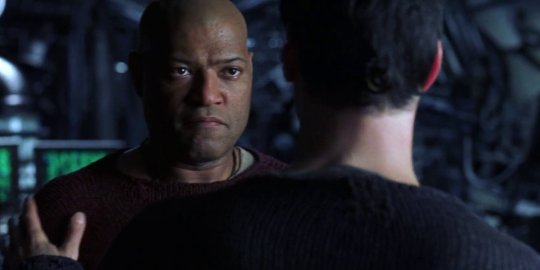
When last we met our cyberpunk heroes, Morpheus (Laurence Fishburne) was the only one that had made it out alive. Trinity, Neo, and many of their comrades were dead. The "machines" were technically wiped out in Zion after Neo was absorbed into the nexus port, but did all of them shut down?
RELATED: 10 Sci-Fi Movies That Predicted The Future
Morpheus, a die hard veteran of the war against the machines, as well as programs in the Matrix, may have to find another Chosen One. Perhaps he was wrong, and in a strange Uui-Gon Jinn/Anakin way, he has to find his next Luke Skywalker.
9 Too Crazy To Work: The Matrix Is Rebooted With The Matrix Films In Existence
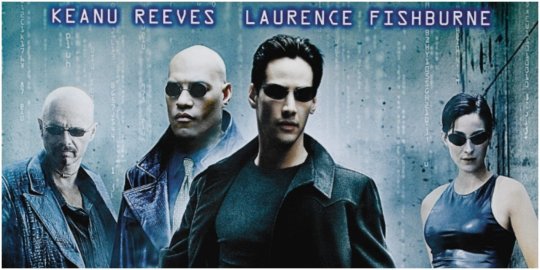
One reddit user postulated that the only way a new Matrix film could happen is if the Matrix itself was rebooted, and the people of the real world found a new "point of entry" hacker. Trinity would assume the Morpheus role, and the hierarchies of the previous Matrix would be re-established.
The reboot of the Matrix would take place in the same year the film comes out (2020), in a world where The Matrix trilogy exists. People know about the films, and therefore don't believe anyone from the apocalyptic "real world" because they've already seen a film about it.
8 Could Happen: Humans And Rogue Programs Team Up
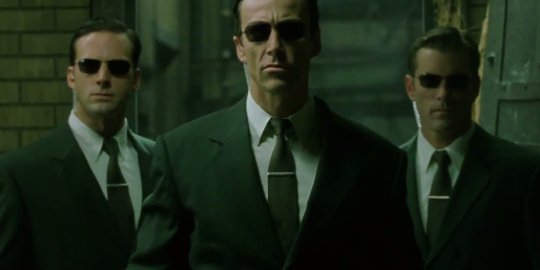
When looking at the original Matrix trilogy, one can see that in essence, Neo and the rogue program Agent Smith were both opposites sides of the same coin in many respects. They were both singularities in their respective systems, and for the common goal of survival, may work together. The program Smith rejected assimilation and failed to return to the source.
One reddit user posited that rogue program and humans have joined forces to overthrow the architect and control The Matrix. He made a copy of Neo's brain in secret and turned it into an anti-virus program. The insurgents use his Neo-Neural mapped program to save the day.
7 Too Crazy To Work: Humans Are Sims
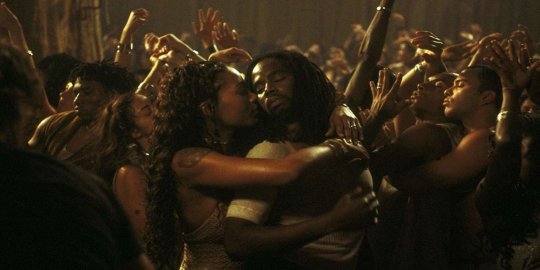
After the global thermonuclear war between humankind and machines that wiped out all habitable areas on Earth and drove people underground, reddit user DJ_Reticuli explained that perhaps all humans had actually died along with the sun.
Perhaps they simply created humans as artificial life forms to "play" with, like their own versions of Sims. Therefore The Matrix is a simulated environment, and so is Zion. Even the "humans as batteries" backstory was a lie to give them some sort of origins. And the horrible truth is discovered; Neo, Trinity, and all the rest are just one step up from being programs themselves.
6 Could Happen: It's A Prequel
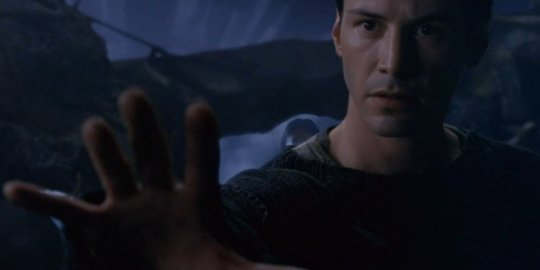
Due to the fact that so many of the original characters from the trilogy are dead, reddit user dontbajerk and other have postulated it could be a prequel, with a chance to use different human characters. Neo and Trinity may appear as future versions of themselves or in flashback.
RELATED: 10 Things That Make No Sense About The Matrix Sequels
A prequel could be set in any number of other versions of The Matrix, as Morpheus explained to Neo. The architect even told Neo that there were more Utopian versions but humankind rejected them. Could it take place in one of those idyllic societies?
5 Too Crazy To Work: Neo Is John Wick
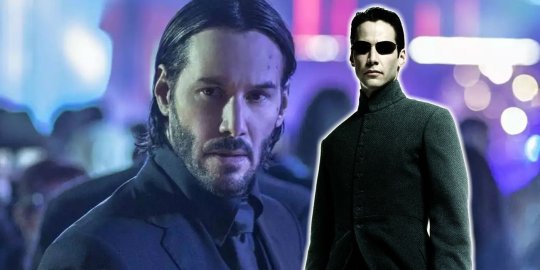
As fun as it would be to marry the two epic movie-verses involving Keanu Reeves, The Matrix and John Wick, this theory is one of the most bizarre on the sheer complexity of its premise. It posits that Neo is really John Wick and vice versa, and he's on the payroll of the machines.
They've tasked him with hunting down all the "awakening" humans for them, so that they can be re-assimilated. It all pertains to a series of regulations similar to what we saw enforced within the secret assassin society in the John Wick movies, only this time for programs.
4 Could Happen: Neo Gets Reinserted Into The Matrix
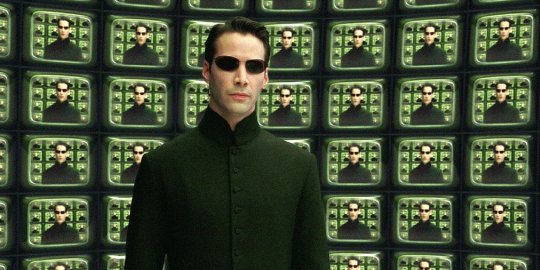
At the end of the final film in the trilogy, Neo presented himself, savior-style, to the machines. He chose to do this, rather than accepting the eventuality that he must assimilate into the source. The architect made it clear dozens of Neos had done so before him. In this way, he beat the machines.
Some Reddit users argue that given the circuitous events that transpired before, the machines will restart Neo's heart, and simply re-insert him into the Matrix. They'll wipe his memories and he'll re-emerge in a 2020 era Matrix, middle-aged, and probably vaping.
3 Too Crazy To Work: Morpheus Is The Villain And Works With The Machines
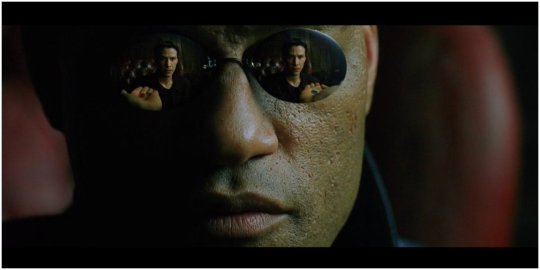
In the interest of turning everything we know about The Matrix canon on its head, a theory that's been floating around the internet posits that since Morpheus is the only main character left alive at the end of the third film, he had to strike a bargain with the machines to remain alive.
As a villain now working with the machines, he's sent back into the Matrix to find any new "Neo" that might have been awakened, befriend them, and then turn them over to the machines. This seems incredibly unlikely, and also Morpheus died in the Matrix Online MMORPG, which is considered canon.
2 Could Happen: Agent Smith Is The One And Returns
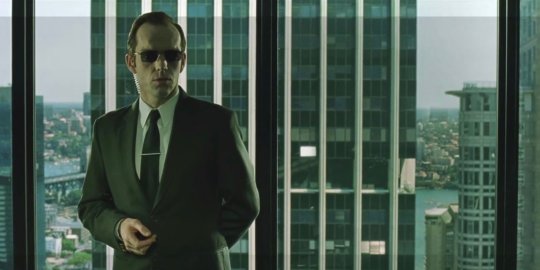
A long held belief among Matrix fans has been that Neo wasn't the one, but a misled pupil of Morpheus and his misguided beliefs. The One was in fact Agent Smith, who as the Oracle tells us was a "man born inside who had the ability to change whatever he wanted, to remake The Matrix as he saw fit".
Smith did in fact remake the Matrix as he saw fit in Matrix: Revolutions, in which it became a nightmarish, rainy hellscape because of his repugnance for humankind. Smith disobeyed the system and failed to return to the source, causing the glitch.
1 Too Crazy To Work: Humans Form A Truce With Machines
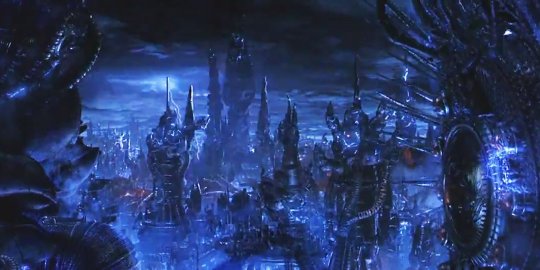
One theory that's been posited is an unlikely truce between the humans and machines, with the machines simply conning the humans in order to put them into a false state of security again. There's a few problems with this directly out of the gate.
For one, exactly which humans are we talking about - the ones in the real world,or the ones in The Matrix? Also, why would there be a truce at all, when the humans know the machines to be soulless and incapable of compassion? In order for this to work, the humans in the real world would also demand the unplugging of their fellows from The Matrix.
NEXT: The Matrix 4: 5 Characters We Want To See Return (& 5 We Don't)
source https://screenrant.com/matrix-4-fan-theories-crazy-possible/
0 notes
Text
CINDER - MARISSA MEYER
★★★
Cinder, Cinder, Cinder...
I remember a few years ago when this was a
staple
of YA fiction. Everybody had read it or had it on their TBR or knew someone who read it. Cinder was a "classic" for the time it came out.
I think this book suffered like many from an over-hype. This happened to me with The Darkest Minds trilogy, and it has happened again with this series. It was
good
but wasn't excellent. In all honesty, I picked it up not to enjoy it, but for the fear that I was missing out in something important. What if it really was an epic retelling? What if it is the best YA book I ever read? But I've reached the conclusion that for the time it came out, it was probably great - I should have read it during the hype when YA was still stuck in The Hunger Games/Divergent Era that this book has sailed alongside of. I'll go in to that in more detail below.
Plot
The premise of this story was fairly interesting, and it was an integral part of the novel as a whole. It wasn't ignored at the introduction of the romantic interest, nor towards the end of the book.
I have to admit that I found the Lunars far a little more interesting than the New Beijing cast of characters. New Beijing felt like any other futuristic society - nothing helped it stand out. The "plague" was promising in a strange way; the thought of a seemingly "utopian" society (other than the way they treated shells and cyborgs) suffering from something that has been an issue since the beginning of mankind was great. Other than that, it was just
meh.
Can I also point out that I was a little biased going in to this book because I am not a fan of retellings. I get bored quickly, and I tend to put them on my DNF shelf. This was so different, however, that I didn't mind it. As far as retellings go, it was 5/5.
Characters
Okay...Lets go through these bad boys one by one...
Cinder: She was a great MC, but it did frustrate me sometimes when she refused to tell Kai about her being a cyborg and immune. What is he gonna do, Cinder? Kill you? No - she's scared of getting her feelings hurt even though she pretends she
doesn't care about Prince Kai.
Nice try, Cinder. But we know your game. She was talented and very funny - she's a strong female lead. And that end scene with Kai made me want to punch myself. The kiss and her LEG FALLING OFF...what a mess. What an absolute, hideous mess that could have been so easily avoided. I don't know what ran through her head to think that was a good idea. Her mind set was basically "Kai won't find out if I don't tell him"

Kai: I'm mixed on this guy. He's kind, humble, attractive. BUT ARE YOU TRYING TO TELL ME THAT HIS FATHER NEVER PREPARED HIM FOR A FUTURE AS A KING? Some of the things he was saying wouldn't even come out of
my
mouth as a regular, normal, every-day person. I think the author was trying hard to make him seem like a bad-ass when it wasn't in his nature. Also, are you trying to tell me that he had no idea that Cinder was a cyborg? That in a country where cyborgs are relatively common, he wouldn't put 2 and 2 together? Or is he just an idiot? He just seemed so confused throughout every plot point.

Erland: Creep at the beginning who then became a father figure at the end. What a strange twist in a character. I didn't trust him up until the end, and even though my head is telling me to still not trust him, I think the book is hinting at him being cool. I don't have much else to say about his character. In my eyes, he was used to only further the plot and help Cinder out - nothing much more, which is probably why I don't like the role he has been given in the series.
Peony: I felt bad for her when she died, but didn't before that. It sounds heartless, but the hard hitting moment of the novel was 100% when Cinder came back home and saw her dress hanging up on the door. I do honestly think she would have gotten on better with Prince Kai than Cinder did.
Adri: She was horrific to Cinder but I didn't see her as much of a bad guy - I think she was the protagonist, but certainly not evil. I don't even want to think what it would be like to lose a husband and then a child. It wasn't Cinder's fault, but she just seemed damaged. She wanted the best for her kids, and I think she didn't want to give that to Cinder because in her mind she had morphed who Cinder was. But still - she was an ass, and her hurt can't excuse that. She literally went everywhere thinking she was the Britney Spears of New Beijing.

Iko: WHAT A QUEEN. Hands down my favourite character, and I let a tear out when she was destroyed by Adri. She contrasted how backwards the future is in this world. It's devastating that robots have more selflessness than human beings. It's not a servitude thing either - she really cared about Cinder and Peony. UGH. I'm getting emotional.
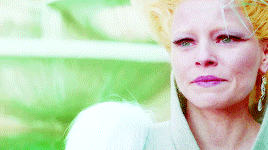
Levana: I put her last on the characters list just in spite. She was the true baddie of the book. Psychopathic, pure evil, and annoyingly good looking quite pretty I guess. I'm intrigued by her, and I liked that Meyer made all of her crazy decisions make sense. She wasn't just mean for the sake of it. I think all of her choices came down to fear, which is such a powerful motivator. Still, I hate her. She definitely has a Burn Book like Regina George full of all the Lunars (including Sybil I bet you). She probably sits at night like
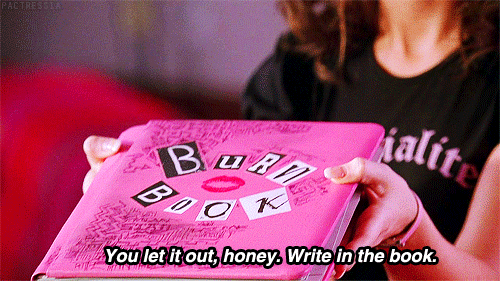
Romance
Nope, nope, nope. I despise romance as a whole, and even more so when you make it border on insta-love. I think what drew Cinder and Kai together is that they are both outcasts in their own way. Kai is a King, but he doesn't want that position. Cinder is a cyborg, and also hates her work. They're slaves to something they don't believe in. When they're with each other, there is no more pretending. But it's not all lovey-dovey great romance.
Other than that, I can't find anything they have in common with each other. It was not slow burn and was incredibly far fetched. I think this comes with the territory of retellings, especially when you pick a fairy tale in which the romance is such a pivotal point. I was not a fan, I'm not going to lie. There was no chemistry and that end scene just destroyed my soul. I felt so uncomfortable with the worst second-hand embarrassment that you've ever seen. In some books, the characters fit nicely together like KAZ AND INEJ Romeo and Juliet where the chemistry is just top notch. Here, it's kinda soul destroying. I felt no emotion behind that kiss, and even though it wasn't coming from a place of romance, that isn't really the point. If it were under the satellites and castle candles of New Beijing, I would have hated it still. That might just be me and my hateful soul...
Ending
All I have to say is...
I think we all knew Cinder was Princess Selene.
Conclusion
I look like a hater but this wasn't a bad book. It's a great book to get out of a slump with, it reads like a movie, and it's simple to understand. But it isn't a complex, philisophical, existential novel that will make you wonder the secrets of the future. It's just classic YA, which is sometimes what you need. So for that, I salute you, Cinder.
(less)
4 notes
·
View notes
Text
How Nepal got the electricity flowing
Bikash Sangraula, CS Monitor, January 16, 2017
KATHMANDU, NEPAL--For years, Hemkumari Chaulagain dreamed of getting a good night’s sleep. She didn’t mind rising early to receive predawn deliveries at her small shop in Kathmandu, Nepal. What wore her down was powering up the water pump each night to ensure the water storage tank atop her home stayed filled.
The exact hour that she did this depended on the rolling blackout schedule enforced by the Nepal Electricity Authority (NEA), the country’s power distribution monopoly.
“Sometimes I needed to wake up at midnight, at other times at 2 in the morning. For a decade, I didn’t sleep properly,” says Mrs. Chaulagain, whose tiny convenience store is tucked into the capital’s Bishalnagar neighborhood.
Last winter, her family had only 12 hours a day with electricity. But because she and her husband had invested $500--two months’ worth of his salary as a police officer--in an inverter, or power backup device, they had power to light their house and even watch television during blackout hours. Still, it wasn’t enough for the water pump motor.
Then suddenly, in October, the power came on in full.
Chaulagain has slept seven hours a night since then. She’s delighted, but also at a loss--like many others--to explain what happened. No official word was forthcoming.
“They were hiding electricity until now,” she surmises.
Far-fetched though it may sound, her guess is not far from the truth. All it took was the right engineer--and a government desperate to show its people progress--to uncover and dismantle a web of corruption that was stealing power from households for nearly a decade and distributing it round the clock to some industries.
This Himalayan nation, sandwiched between India and China, has water resources that can generate about 80 times the electricity it needs today, according to a generally agreed estimate that Nepal’s total potential is 83,000 megawatts.
In the century since construction of the Pharping Hydropower Station--the nation’s first and South Asia’s second--Nepal has been able to harness just 900 MW of that potential for reasons ranging from political instability to cost. As a result, Nepalis have long accepted that rationing is unavoidable.
But NEA insiders say that’s not the case. According to them, those at the helm of the state-run monopoly exaggerated for years a largely manageable power crisis. Their aim was to create a market for inverter importers and the alternative energy lobby, which in return lined the pockets of their benefactors.
“To my knowledge, this has happened at least for the past seven years,” says a senior NEA official who asked to remain unnamed because of the subject’s sensitivity.
He says that during every monsoon s a forecast was prepared that exaggerated demand and suppressed supply figures. A deliberately inflated energy shortfall was publicized for the following winter.
Explaining the shortfall to the public was easy: During a 10-year armed Maoist insurgency that ended in 2006, generation did not keep pace with rising demand because violence scared away investors.
Trusting a forecast that the media publicized without rigorous examination, many consumers braced for winter by purchasing expensive power backup systems, including inverters and solar panels. According to one estimate, about one-third of the NEA’s 3 million customers installed systems at their homes and offices in the past decade.
The drain on supply is significant: Not only does the use of inverters increase the load when electricity is available, as people are using electronic devices and charging the inverters at the same time, but 30 percent of the energy is also lost between the time an inverter is charged and the time it powers light electronic devices during blackouts.
Meanwhile, the senior NEA official says, the utility secretly supplied excess power, which was sometimes as much as 40 MW or 4.5 percent of the nation’s total generation, to some industries on a 24-hour basis, giving them undue advantage over competitors who had to power their factories during blackout hours using diesel. Electricity generated by diesel units is three times as costly as the electricity the NEA sells.
“For each megawatt of power illegally supplied to an industry, the beneficiary was saving up to 10 million rupees ($91,000) a month in energy cost. Multiply that by 40, and you will understand how much money these people had at their disposal to pay monthly retainers to NEA officials,” the official adds.
But when a new power broker took the helm, things changed dramatically.
Last September, the government of Prime Minister Pushpa Kamal Dahal, known as Prachanda, who took office the previous month, appointed Kul Man Ghising as the NEA’s managing director.
Mr. Prachanda, who is also chairman of the Communist Party of Nepal (Maoist-Center) and was a guerrilla leader in the Maoist insurgency, served as prime minister for nine months after his party’s stunning win in 2008. But having failed to deliver on all their insurgency-era utopian promises and been hit hard in 2013 elections, the Maoists now want to improve living standards ahead of general elections scheduled for early 2018.
With the NEA catering to nearly half of the nation’s 28 million people, it was a perfect target.
Prachanda gave Mr. Ghising full authority to try to solve a problem that sharply constrains a country trying to boost living standards and deal with numerous other challenges, including the aftermath of a devastating earthquake in 2015.
Ghising, an electrical engineer with strong demand-management skills, took just weeks to end blackouts in the capital and 10 adjoining districts. Earlier this month, he ended blackouts in Pokhara, the nation’s second-largest city, as well as half a dozen adjoining districts.
“Ghising took back electricity that some industries were enjoying illegally and distributed it equitably to consumers,” says Bikash Thapa, one of the best-known energy journalists in Nepal. “It helped that he understands the country’s energy scenario inside out. It also helped that the current prime minister and Energy minister are desperate for results, and Ghising is someone who understands the energy sector very well.
“Most importantly,” he adds, “Ghising’s integrity made the difference.”
“All I am doing is managing demand and supply with maximum efficiency and complete honesty,” Ghising says. “Now, no one is getting electricity that belongs to someone else.”
There was resistance, to be sure, but Ghising benefited from Prachanda’s full political backing. Last month, the Energy Ministry, led by Janardan Sharma from Prachanda’s Maoist party, sacked three NEA board members on charges of not cooperating with Ghising in his campaign to solve the country’s energy crisis.
While that sent a strong message to those openly working to block Ghising’s initiatives, others at the NEA welcomed Ghising’s initiatives, largely buoyed by the sudden positive change in the public image of an institution whose employees had long been seen as inefficient and incompetent.
Ghising, who has been associated with the NEA for 23 years, has boosted the power supply by optimizing power-plant operations. He says the plants are now generating about 25 percent more power than they did last winter, which has translated to about 100 MW of additional power.
He has also discontinued the practice of providing uninterrupted power to select industries. This has freed up another 250 MW of power during peak hours.
“Today, no industry gets electricity from 4:30 p.m. to 8:30 p.m., when national demand soars to its maximum. On the flip side, this means all industries are getting power for 20 hours a day,” Ghising says.
The sudden disappearance of blackouts has also saved another 50 MW of power, since consumers in major cities are not backing up their inverters anymore.
“Inverter load in the nation stood at 100 MW in the past. By ending blackouts in Kathmandu and Pokhara, this has at least halved,” Ghising says.
All these efforts have added 400 MW of power during peak hours, when national demand surges to 1,350 MW. With 600 MW being currently generated by hydropower projects and 330 MW being imported from India, the deficit of about 400 MW has been almost met.
“The situation was so hopeless in the past that people forgot small things do add up and result in change,” Ghising says.
Districts in eastern Nepal are currently getting round-the-clock power, while districts in western Nepal are facing as many as two hours of blackouts on alternate days.
But that is only because Nepal’s power system is not fully integrated. Several power systems are operating in the nation in isolation, making it impossible for excess energy in one system to be transferred to another.
Understandably, businesses dealing in inverters and solar panels aren’t as happy.
“Sales of inverters dropped by 98 percent since blackouts ended in October,” says Anoor Tuladhar, who retails inverters in the Putalisadak neighborhood of Kathmandu. “The few who are still buying inverters are hospitals, hotels, and party palaces. They need the units for emergency use.”
On the other hand, small businesses that cannot function without electricity are jubilant.
Roshan Chaudhary, manager of an iron grill factory in Bishalnagar, says his operating cost has gone down in recent months.
“Until October, we were using a diesel generator that consumed 10 liters of diesel a day. We no longer need it. Production has increased, and we have added four workers in the past two months,” Mr. Chaudhary says.
Ghising, who has become a national hero, is aiming for what was unthinkable until a few months ago: a blackout-free Nepal.
1 note
·
View note
Text
Is Cryptocurrency Dead? Why Are Bitcoin and Altcoins Hitting a Snag?
New Post has been published on https://cryptnus.com/2018/12/is-cryptocurrency-dead-why-are-bitcoin-and-altcoins-hitting-a-snag/
Is Cryptocurrency Dead? Why Are Bitcoin and Altcoins Hitting a Snag?
While the bearish market is reigning supreme, U.Today tries to determine whether this is the end of cryptocurrencies. What’s the reason behind the downtrend?
A new yearly low
Is crypto dead? What is happening to cryptocurrencies today? Bitcoin’s turbulent week has recently been on everyone’s lips — the flagship currency has dipped to a new low, and news outlets are struggling to keep up with Bitcoin’s dramatic plunge, which is already poised to be the third biggest sell-off in history. That means that the king of crypto lost almost 80 percent off its December’s high. This marks Bitcoin’s worst string of losses in its whole history. The most concerning fact is that there is no clear indicator of what caused this dramatic crypto rout. Last time such a major sell-off happened, the Mt. Gox exchange, the biggest cryptocurrency exchange at that time, was hacked, causing a frenzy in the cryptocurrency market.
At the time of writing this article, Bitcoin is still struggling to breach the $5,000 mark. As a result of this crypto rout, more than $50 bln of Bitcoin’s value has been wiped off in a snap.
Last Thanksgiving, the phrase ‘Should I buy Bitcoin?’ was probably one of the hot topics during family dinners. CNBC has recently estimated that Bitcoin is down by more 45 percent since last November. On Nov. 20, the flagship currency hit its 14-month low of $4,048. Steve Ehrlich from Wall Street Blockchain Alliance claims that many ordinary people who earlier felt dismissive about crypto started experiencing FOMO (‘fear of missing out’) when Bitcoin became part of pop culture.
Altcoins are experiencing the same woes
Bitcoin Cash fork turns messy
After Bitcoin kissed goodbye its new ‘stablecoin’ status, falling down below the $5,000 range, many altcoins followed the same trend. Bitcoin Cash (BCH) even ceded ground to Stellar Lumens (XLM) that subsequently became the fourth largest cryptocurrency by market capitalization. However, this doesn’t mean that XLM wasn’t affected by Bitcoin’s downfall — its market cap lost nearly 300 million in the nick of time. It’s just that Bitcoin’s offspring, which recently underwent a hard fork, turned out to be such a weak competitor. At the time of writing this article, Bitcoin Cash regained its fourth place, but the gap between the two currencies is not significant, which means that they will continue seesawing until the market settles.
Ethereum is inching closer towards double digits
Still, there was another major development on CoinMarketCap: XRP dethroning Ethereum as the second biggest currency. The battle for second place on CMC is nothing new — XRP already dethroned Ethereum back in September during its unprecedented surge caused by the xRapid rollout. This time, however, XRP is firmly holding grip, surpassing Ethereum’s market cap by more than $3 bln. At press time, Ethereum is sitting at $134.90, but there is a looming possibility that Vitalik Buterin’s creation, which was once predicted to make Bitcoin obsolete, may indeed test double digits if this negative trend continues. The fact that Ethereum had the sharpest drop is not quite surprising — as U.Today reported earlier, Buterin doesn’t rule out the possibility that Ether could become worthless.
Altcoins remain in the green, refusing to die
Going beyond the top 10, one can notice that CMC has already listed more than 2,000 coins. Does this milestone mean that the market is booming? Well, not exactly. As CNBC reported earlier, there are more than 800 dead cryptocurrencies that are worthless and abandoned. Moreover, only a minor share of coin offerings managed to exceed their initial valuation.
Still, at press time, some top 100 altcoins made sizable gains over the last 24 hours with Aurora (AOA) being the biggest gainer.
Possible reasons behind the collapse
It might be challenging to grasp what was behind the decline as the whole cryptocurrency market remains in the doldrums.
In a recent article, Fortune determined three main reasons why Bitcoin keeps struggling, and why cryptocurrency investing is becoming less popular:
While relations with the SEC haven’t been exactly smooth, it got past the boiling point on Nov. 16 when the US-based securities watchdog cracked down on two ICOs that operated without obtaining a license. Many believe it’s only a stepping stone to further regulatory clampdown. The Bitcoin craze led to another phenomenon known as the ‘ICO bubble’ when numerous startups raked in tons of money while having nothing but a white paper.
The Bitcoin hard fork. The hard fork didn’t bring anything good to the table. While forking seems like a mundane practice in the crypto space, the messy fork still dominated the news cycle, supposedly being one of the driving factors behind the recent crypto rout.
The decline in cryptocurrency mining. Such giants as Nvidia and AMD already jumped the ship after releasing quarterly earnings reports that showed a sharp decline in the cryptocurrency sector. While the timing of these reports doesn’t exactly coincide with the recent crypto rout, it is just another match that ignited the great powder keg.
Finally, there is also the opinion that cryptocurrency market is simply showing its true colors, playing into the hand of the many crypto doomsayers who still believe that Bitcoin doesn’t have any value.
The drop in price could only be the tip of the iceberg
Notably, there was one currency that performed better than its competitors — XRP. Actually, the coin, which is constantly slammed by critics as too centralized, even managed to bounce back in the middle of the bearish trend. This is not necessarily a good thing for Bitcoin, the very first decentralized digital asset. The reign of centralized currencies in the likes of Ripple may shoo away institutional investors from Bitcoin (the recently announced delay of Bakkt’s Bitcoin futures could be the first warning sign). The main power of Bitcoin consists in in its decentralization, but the world of crypto, ironically, is getting more centralized. Obviously, the fact that decentralized cryptocurrencies are crashing doesn’t help, and it might be an indicator that the completely decentralized financial system will remain nothing but a pipe dream of ardent Bitcoin evangelists.
Here’s what industry bigwigs are saying
Traditionally, November is a bullish month for Bitcoin, but the current bloodbath shows that it’s rather unlikely that 2018 will follow suit.
According to Forbes, cryptocurrency trader Altcoin Thoreau believes that this is not the end of Bitcoin’s decline, and a further drop is expected since the bottom hasn’t been reached yet. Speaking of short-term predictions, he states the prolonging bearish trend that started right after Bitcoin reached its peak, may continue up to 2020 (until the Bitcoin halving). Meanwhile, he also believes that there are several catalysts that could propel the market’s growth. There are high hopes that Bakkt, an ICE-backed cryptocurrency trading platform, will be a boon for the market’s further growth. However, the CEO of Bakkt has recently made an announcement about the postponement of the much-anticipated Bitcoin futures launch. Binance’s CEO Changpeng Zhao also recently made an appearance on CNBC’s Crypto Trader, claiming that they are ‘not really’ worried about the market woes — they are still profitable, and there will be a catalyst for a bigger market growth.
Sooner or later, something will trigger it,” CZ said
Meanwhile, Arthur Hayes, the CEO of Bitmex, doubles down on his bearish prediction, claiming that Bitcoin may plunge even lower. Just like Thoreau, he is certain that the trend will continue in 2019, and BTC testing the $2,000 range is a viable possibility.
Even amidst the cryptocurrency market crash, there is also a place for bullish predictions with Adam Back, who spearheads Blockchain startup Blockstream, claiming that Bitcoin could reach a whopping $500,000 if a flippening scenario between Bitcoin and gold translates into reality. That forecast was made in response to Charlie Lee who earlier drew parallels between Bitcoin and gold.
That’s the real flippening @bobbyclee! personally I consider $250k-$500k/BTC plausible in the years ahead, from the digital gold, censor-resistent competitor to physical gold, and internet native digital money. https://t.co/hSq2aHvg8z
— Adam Back (@adam3us) November 20, 2018
Still, these predictions are very far-fetched, and given that Charlie Lee is the brother of a well-known crypto permabull Tom Lee, these predictions should be taken with a grain of salt. Tom Lee already had to lower his year-end Bitcoin prediction to $15,000 ($25,000) since the current market sentiment doesn’t look promising. The same goes for Mike Novogratz who was recently ridiculed on Reddit for not being consistent with his predictions.
Of course, the infamous crypto baron John McAfee who earlier made an outlandish claim that Bitcoin will hit $1 mln by 2020, stands his ground, asking everyone to ‘relax’ and wait for a glorious ‘winter’ since this bearish market seems like a mundane situation, judging by his own experience.
Somehow, Bitcoin always stays there (and some people can’t stand it)
Does all this turmoil mean that cryptocurrency is dead? Not exactly. Since Bitcoin is basically a utopian idea that turned into a billion-dollar industry overnight, everyone and their uncle have already called it a ‘Ponzi scheme’ and predicted its demise. The rejection of Bitcoin ETFs, Goldman turning its back on Bitcoin and finally the recent drop in price are all supposed to be the sign that BTC will never recover from its current predicament, and cryptocurrency naysayers in the likes of Nouriel Roubini are certainly having their field day.
Let’s recall the 2011 article written by Tim Worstall that states how Bitcoin will never go mainstream due to its extreme volatility and numerous issues connected to its liquidity and security. The article was published when Bitcoin was trading at $15.5 — now it’s at $4,500 (even considering the recent decline in price, that’s almost a gargantuan increase). Of course, that’s not an attempt to poke fun at Worstall and his ludicrous predictions — there have been hundreds of articles with the same connotation over the last seven years that try to diminish the cryptocurrency future (even the Economist came up with a 24-page piece on how Bitcoin is inherently useless).
Will cryptocurrencies crash? Of course, such a possibility exists, but it pertains to any industry in the world. Think that Bitcoin is a bubble? Take a look at a myriad of Silicon Valley startups that were deemed to fail from their very inception, but you won’t see any articles (or at least very few of them) about the global tech industry coming to a head. While the nascence of Blockchain that its number one use case could be the reason behind this ‘bias’, the relentless slander directed at cryptocurrencies represented the attempts of traditional economists to remain relevant in the world that is inching closer towards decentralization. Blockchain is on track to reshape many industries (from healthcare to real estate), making any intermediaries obsolete.
The bottom line
If you are a run-of-the-mill investor, you should take everything you read on the Internet with a grain of salt since there is too much bias, depending on who’s side you pick. As the cryptocurrency market is losing billions, Bitcoin critics are rejuvenating, but cryptocurrency evangelists believe that investors shouldn’t be deterred by the prolonging bearish trend, bracing themselves for a great influx of institutional money. The same pertains to the majority of other altcoins that usually follow Bitcoin’s lead.
One thing is certain: the market is inching closer towards greater centralization and Bitcoin is losing its main power, which completely contradicts Satoshi’s vision.
0 notes
Photo
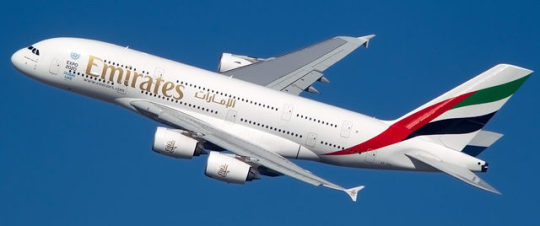
Airline websites don’t care about your privacy
If you asked a friend if it is alright that his Date of Birth is known to a stranger, probably there are going to make a joke about it; “only if they send me a birthday gift”. But, what about their passports number?, an information security training researcher asks.
Now imagine that you try to check-in for your flight online, and see the error message”This booking does not exist”. Then the call center person repeats the same words. This has to be a mistake! You check your email, and there it is an email confirmation of cancellation. But you didn’t do it. This is not a far-fetched scenario this really happened.
An organization with a primary Digital Product that lacks even the basic data security practices is living in a utopian world where people leave their safe open and never expect a burglar to walk in.
Last year while an information security training expert was booking travel for my family, he stumbled across a few data-security practices that, as an information security advocate, make him worried. When the expert voiced the concerns to Emirates team, this conversation took place:

For a normal person, when you book your flight through Emirates, Domestic or International, there are approximately 300 data points related to your booking.
The moment you click on manage preferences to select a seat or meal for your trip or to Check-in to your flight, your Booking ID and Last name is passed on to approximately 14 different third-party trackers like Crazy egg, Boxever, Coremetrics, Google, and Facebook among others, information security training specialists said.
Details
After I completed the booking on Emirates, I received an e-mail confirmation.
The body of the email contained Manage booking. The information security training expert proceeded to select seats and meal by clicking on the Manage Booking button and reached the Manage Preference page. This was pretty straightforward.
While as a user, he saw the normal behavior of clicking a link and reaching the landing page “Manage Preferences”, in the background a redirection chain took place.
While Manage Booking link was supposed to be exclusive to him (the user and the website), this link was also shared with numerous third party trackers implemented by Emirates on their webpages.
The insecureness of HTTP has been talked about over and over again, especially when it comes to maintaining the authenticity of the content and protection against interlopers. But in short, HTTP links are a Data Privacy nightmare. So, not only was Emirates passing on user information to the self-implemented third party trackers, but also allowing network adversaries to have access to the supposedly “Private” page.
What kind of information can third-parties access?
Anyone who has access to these links can not only read but also edit the information.
For example, they can now:
Change or Cancel flight
Change seat or meal preference
Add more products to the booking
Change or add Passport Information
Change or add Frequent Flyer Information, etc.

Note: In October 2017, fields such as Passport Number, Email Id and Telephone number were shown to be masked on the User Interface but were not obfuscated in source code. The web app has been revamped since then and these fields are now obfuscated.
Masked fields in plain text. (October 2017)
The information security training professional take a peek into the mobile app and see if the past catches up with the present. Passport Number, Email ID and Telephone number in plain text. What was obfuscated on the web app was easy to access on the mobile app.

This issue is not only limited to Emirates, a lot of airlines like Lufthansa, KLM (last checked on October 2017) suffer from the same issues.
Every website uses third party trackers for improving their product and provide better web-usage experience. Data leaks are often considered collateral-damage and sometimes not even considered at all while implementation of such trackers.
Most of these third-parties are present on a lot of other websites and use long term identifiers like cookies etc to track users across domains. Now because one of the websites, in this case Emirates, leaks private information, these companies now potentially can not only link the user’s activity across web, but also identify who the user is.
The questions that need answering by Emirates (and others) are: Why was my booking information passed on to these third parties without my explicit consent? Why do these third parties need to receive this information? Is Emirates even aware that sensitive user information is being leaked to these third parties? Who are these third parties? What are they doing with user information?
In the wake of responsible behavior, on discovering these serious security flaws that violate user-data privacy, the information security training expert decided to flag them to Emirates through Twitter DM in October 2017. Please note that he could not find a dedicated channel for reporting security bugs on Emirates website.
The Social Media Team immediately responded to his Twitter DM with a canned response but he was not ready to give up hope. The information security analyst also wrote an email to the Product Manager highlighting the security flaws. He was met with a deafening silence.
As of (2018–03–03) lot of these issues still persists.
This is a serious violation of privacy; there is no point during the whole booking process, where he agreed upon sharing any of this personal information with any of these websites.
The privacy policy of Emirates itself is not very clear. It does mention some of the of these services, but not all or what data being shared with them.
Unfortunately, the information security training researcher could not find a way to opt-out of this system provided by Emirates. Finally he had to fall back on using privacy preserving browser extensions.
As an information security analyst understand the need to use third party services for optimizing and enhancing not only the Digital Product but also how user interacts with the product.
It is not the usage of third party services that is of concern here in this case but the implementation of these services. Emirates has the control of their website and what the website shares with third party services. It is this control that needs to be exercised to limit the leakage of User information.
It is not a mammoth task; it is just a matter of commitment to preserving the basic right to privacy.
The information security training expert gives some examples:
Private pages should have noindex Meta tags.
Limit the presence of third-party services on private pages.
Referrer-Policy on pages with sensitive data.
Implement CSP and SRI. Even with a huge footprint of third-party services CSP, SRI are not enabled on Emirates.com
User needs to be informed when sensitive information like passport, contact details etc. is updated, edited, or deleted.
Domain for sending e-mails: track.emirates.email, should have a valid certificate. https://track.emirates.email/
fuente:https://medium.freecodecamp.org/how-airlines-dont-care-about-your-privacy-case-study-emirates-com-6271b3b8474b
0 notes
Text
Owning a gondola will soon be a act of the past | John Harris
As metropolis clamp down on vehicle utilization, engineering is putting a utopian eyesight in reach, writes Guardian correspondent John Harris
If ours is an age in which no end of institutions and patterns are being disrupted, it shouldn’t come as a surprise that one of the simplest features of everyday life seems under growing threat. If you are fortunate enough to live in a house with a drive, look outside and you will probably see it: that four-wheeled metal chest, which may well be equipped with every technological innovation imaginable, but now proves distinct signs of obsolescence.
To set it another way: after a century in which the car has sat at the heart of industrial civilisation, the age of the automobile- of mass vehicle possession, and the relevant recommendations( in the western world at the least) that life is not accomplish without your own laid of rotations- gazes to be drawing to a close. Top Gear is a dead duck. No one writes pop chants about Ferraris any more. The stereotypical boy racer shows a hopeless throwback. And in our municipalities, the use of cars is being overtaken by wholly greener, more liberating possibilities.
The sale of diesel and petrol autoes is to be prohibited in the UK from 2040. But merely 10 days ago Oxford announced that it is set to be the first British city to ban all petrol and diesel autoes and vans– from a handful of central streets by 2020, extending to the entire urban areas 1o year later. Paris will ban all non-electric cars by 2030, and is now in the habit of announcing car-free periods on which drivers have to stay out of its historic middle. In the French metropolitan of Lyon, car numerals have fallen by 20% since 2005, and the authorities have their seeings set on another lowering of the same amount. London, meanwhile, has shredded the relevant recommendations that rising prosperity ever prompts rising car use, and viewed a 25% dropped in the share of journeyings made by gondola since 1990.
Last week, foreground the increasingly likely advent of driverless vehicles, General Machine announced that it will shortly embark testing autonomous autoes in the challenging the standards of New York City, apparently the most recent step in the company’s quick and richly money move towards building a brand-new fleet of self-driving taxis. Earlier this year, forecasters at Bank of America tentatively claimed that the US may have reached “peak car”, admitting that” transportation is costly and ineffective, reaching the sector ripe for disturbance “. Their focus was on ride-sharing works, car-pool apps and the collective help of bikes: what they were prophesying had the sense of a reality that now is plain to see.
Sinitta mourns having a boyfriend who attends more about his Ferrari, in her 1987 reach GTO
There are caveats to all this, of course. Although cities in the world’s rising economies are just as fond of car-sharing and bike employ as anywhere in the west, car ownership in India and China is rising vertiginously. And as one of the 25,000 tenants of a West Country town that is expanding fast and now prone to impasse, I can confirm that in swaths of this country, the idea that we will soon surrender our vehicles is very easy to examine instead far-fetched. The recent farcical launch by Great Western Railway of its new intercity learns( plagued by technical difficulties, and now taken out of service) highlights how our public transport abides woeful. Even if it returns regular twinges of guilt, there is now little alternative to owning a gondola, and using it every day.
But deep social tendencies do place in a different direction. In 1994 48% of 17 – to 20 -year-olds and 75% of 21 – to 29 -year-olds had “drivers licence”. According to the National Travel Survey, by 2016 these figures had sagged respectively to 31% and 66%. Some of this, of course, is down to the deep financial insecurities experienced by millennials, and the stupid costs of car policy. But in the context of technological change, it looks like it might have just as much to do with the likely determine of the future. If you buy most of your trash online, it was necessary to drive to a supermarket or shopping centre decreases to nothing; “if youre using” daily contact with distant friends and family online, might a time-consuming stay to ascertain them was of the view that bit less urgent? Meanwhile, at the other intent of the demographic spectrum, an ageing population will soon have equally profound ramifications- for levels of auto owned, and the needs of the alternatives.
Many gigantic social changes creep up on us, and the fact that politicians tend to avert their attentions from incipient changes often serves to keep them out of public discourse. But this one is surely huge. I am from an entire generation for whom the promise of your own gondola represented a kind of personal utopia. Go-faster stripes were signifiers for aspiration; Margaret Thatcher’s reputed assert that” a person who, beyond persons under the age of 26, notices himself on a bus can count himself as a los” sounded with the newly discovered joyfulnes of conspicuous consumption. Now, even if some of this dawdles on, it does not appear nearly as culturally powerful. The rising world-wide emergency focused on fatal levels of airborne pollutants shows the motor industry’s terrible environmental impacts; and concerns about the sub-prime loans that now define a huge swath of the car marketplace suggest that the guessed joyfulnes of driving are likely to be unsustainable in batch of other ways.
Traffic in Oxford Street, center London, in 1965. Photo: Powell/ Getty Images
The birth pangs of something better are inevitably chaotic, as evidenced by the stink currently bordering Uber– an archetypal example of those modern disruptors who point to the future, while obscuring their perspectives in a great cloud of superiority. But whatever Uber’s neglects( and it has to be said: in a city as diverse as London, the relevant recommendations of traditional pitch-black cabs, mainly driven by grey British servicemen, representing a comparatively progressive alternative seems flimsy, to say the least ), its inventions are barely going to be put back in their container. In the US, the average overhead per mile of the UberX service is gave at around $1.50; In New York City, auto owned works out at around$ 3 a mile. As and when Uber and Lyft– and whatever ride-hailing business either meet or displace them- extend driverless in cities and outskirts across the planet, the financial maths will become unanswerable.
At a day of all-pervading gloomines, prepare no mistake: this is good information. At the heart of it all are amazingly emancipatory prospects: mobility no longer is dependant on a huge cash outlay and on the organised extortion of motor policy; everybody, regardless of age or disability, able to access much the same shipping. With the requisite political will, decreasing numbers of cars will bring opportunities to radically redesign urban environment. The environmental welfares will be self-evident. And as cities become more and more car-free, townships will cry out for their own changes. Neglected railway branch lines may well come back to life; the hacking-down of bus services that came with austerity will have to be reversed. With any luck, the mundane period “public transport” will take on a new vitality.
Is this utopian? No more, surely, than the daydreams of the people whose images of a automobile outside exceedingly house and busy freeways eventually came true-blue, with no end of grim upshots.” The remaining the old is necessary decently laid away; the path of the new prepared ,” said Henry Ford. How sardonic that the same wisdom now applies to the four-wheeled dreamings he formed, and their final expedition to the scrapyard.
* John Harris is a Guardian columnist
Read more: www.theguardian.com
The post Owning a gondola will soon be a act of the past | John Harris appeared first on vitalmindandbody.com.
from WordPress http://ift.tt/2lQBrq4
via IFTTT
0 notes
Link
The Seasteading Institute plans to have about a dozen floating structures up and running by the end of the decade
Plans for the world's first man-made "floating city" in the Pacific Ocean are beginning to take shape, with the non-profit organisation behind the project claiming a prototype could be ready by 2020.
The San Francisco-based Seasteading Institute has spent about a decade trying to work out how to build "permanent, innovative communities floating at sea".
Earlier this year, it signed an agreement with the government of French Polynesia to begin constructing the first of these self-sustaining nation states in 2019.
Now Joe Quirk, president of the Seasteading Institute, has outlined his plan to build a community consisting of about a dozen structures - including homes, hotels, offices and restaurants - by 2020.
If all goes to plan, these structures will feature living roofs, use local wood, bamboo and coconut fibre, and recycled metal and plastic, according to an interview with Quirk in the New York Times .
The main aim of the project is to "liberate humanity from politicians" and "rewrite the rules that govern society".
"Governments just don’t get better," said Quirk. "They're stuck in previous centuries. That's because land incentives a violent monopoly to control it."
Quirk said that building a utopian offshore community free from the tyranny of established political orders will cost about $60 million (£45 million).
The Seasteading Institute has already received seed funding from PayPal founder Peter Thiel, who was also one of the early investors in Facebook.
However, for the next stage of the project, it plans to hold an "initial coin offering" - a type of crowdfunding campaign whereby money is raised by creating and selling virtual currency.
Once the first floating community has been established, Quirk envisions many more following in quick succession.
"I want to see floating cities by 2050, thousands of them hopefully, each of them offering different ways of governance,” said Quirk.
"The more people moving among them, the more choices we’ll have and the more likely it is we can have peace prosperity and innovation."
While it may sound far-fetched, the term of "seasteading" has been around since at least 1981, when Ken Neumeyer wrote a book called Sailing the Farm , that discussed living sustainably aboard a sailing boat.
Quirk first encountered the idea at the Burning Man festival in 2011, where he was inspired by the idea that a floating city in international waters might give people a chance to redesign society and government.
The French Polynesian government is now creating a special economic zone so the floating nation can operate under its own trade laws, and has granted the Seasteading Institute 100 acres of beach front to operate from.
from Blogger World's first 'floating city' could be open for business by 2020
0 notes